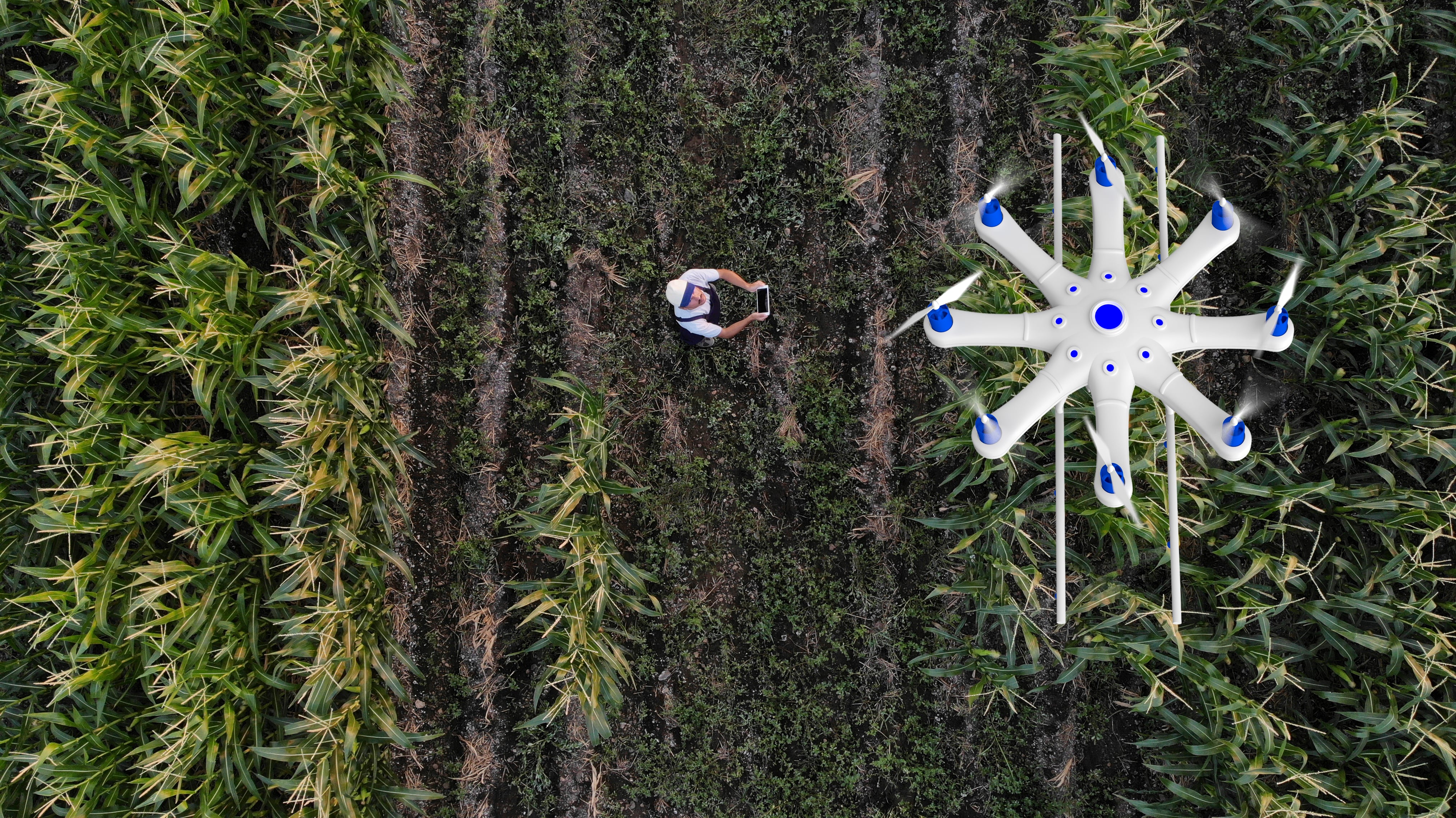Trump announced a new 10% across-the-board tariff on all imports and reciprocal duties that will apply to specific trade partners including China, the EU, India, Japan and South Korea. Tariffs on Mexico and Canada remain in place.
Several countries and trade blocs (such as the EU, China, Canada and Brazil) are expected to retaliate against the new measures. Others (like the UK, Mexico and India) are opting for negotiations or holding off on immediate countermeasures.
What the tariffs mean for agtech
The long-term consequences for the agtech sector remain unclear. Companies and organisations are weighing up the data, getting legal clarity on some of the details, and having conversations with members and suppliers to get a clearer picture of how their operations will be impacted.
In the US, there are big concerns the tariffs could raise costs for imported supplies – particularly fertiliser – while triggering retaliatory measures that harm US agricultural exports.
The American Farm Bureau Federation warned that over 20% of farm income relies on exports. National Farmers Union President Rob Larew said: “One thing is certain: American family farmers and ranchers will bear the brunt of this global trade war. Policymakers must recognise that the consequences of these decisions extend far beyond the farm – our entire food system and the communities it sustains are at stake.”
US agriculture equipment manufacturers – who source parts through a combination of in-house manufacturing and global suppliers of critical parts – are also braced for impact.
The Association of Equipment Manufacturers – whose members include AGCO Corporation, CNH Industrial and John Deere – said: “While we agree that the key to a strong US economy is building more products in America, we need certainty in the trade environment to make investments in domestic manufacturing. We are concerned that reciprocal tariffs on our trading partners will hurt our industry and our customers.”
Ultimately, the more farmers are squeezed, the less likely they are to invest in machinery, technology and innovation.
But will bailouts for US farmers cushion the blow of tariffs? Ohalo CEO David Friedberg – who has links with the new administration – told us in a recent interview that he expects financial support will be provided to farmers in the face of trade challenges, akin to the $23 billion paid during the 2018 China trade war.
The Trump administration is indeed reportedly considering farm bailouts, acknowledging potential economic catastrophes for farmers.
Fears for the global agri-food value chain
Outside the US, there is obvious frustration at the prospect of being priced out of the US market.
Despite the country being exempt from the latest round, Grain Growers of Canada have warned that the 25% tariffs on Canadian grain exports to the US jeopardise family farms and destabilise trade, with $17 billion CAD in annual exports at risk.
The European Federation of Food, Agriculture and Tourism Trade Unions (EFFAT) said the proposed 20% tariffs on European food products will have “devastating consequences for workers, businesses, and food security on both sides of the Atlantic”.
The EU exports more than €30 billion worth of food and agricultural products to the US each year – mainly wine, cheese, chocolate, olive oil, and spirits. In return, the EU imports key commodities like nuts, soy, beef, animal feed, and wheat from the US. This intertwined trade relationship sustains hundreds of thousands of jobs – many of them in small businesses and rural communities.
“These tariffs unfairly target European producers and workers, putting pressure on wages, job security, and market stability,” said EFFAT’s general secretary Enrico Somaglia. “The EU must act now to support affected branches and save jobs, preventing a race to the bottom in labour standards.”
Sector spotlight: ag drones
Arthur Erickson, CEO of the US ag drone company Hylio, explains some implications for this sector.
“Our battery lithium still comes from China (the same as almost everyone else in the drone/EV/consumer electronics/etc spaces), but tariffs on Chinese batteries were already in place and factored in so we will not have to adjust prices. Admittedly I’m not certain, but I don’t believe the recent 'liberation day' tariffs announced will change any of the lithium battery tariff rates specifically, at least not yet so nothing has really changed for us.”
If the EU and others do follow through with countermeasure threats and slap tariffs on US goods, ultimately global trade is put in jeopardy.
European farmer group Copa and Cogeca warned the introduction of additional tariffs threatens to disrupt global supply chains, drive up prices, and limit market access for farmers and agri-cooperatives on both sides of the Atlantic, with significant economic consequences for the agricultural sector.
Copa’s president, Massimiliano Giansanti, said: “European farmers and agri-cooperatives are already facing mounting challenges, from rising production costs to climate-related pressures. These new tariffs will add to further uncertainty and financial strain on our sector, affecting both producers and consumers. Ensuring our food security must be Europe’s compass in these difficult times, as our common national security starts there. We urge policymakers on both sides to seek dialogue and avoid a full-scale trade conflict.”
The European Feed Manufacturers’ Federation (FEFAC) also called for direct US/EU negotiations to exempt all agri-food and feed products.
Current EU import tariffs are at ‘zero duty’ level for essential US feed ingredients such as soyabeans, coccidiostats, Lysine and probiotics as well as maize and co-products like corn gluten feed and DDGS.
FEFAC’s president Pedro Cordero noted that “currently, the EU imports up to six million tonns of soyabeans from the US, accounting for 44% of all the imports of soyabeans to the EU with an estimated value of 3 billion euros for which there is no direct substitution from alternative origins”.
He urged the US and EU trade authorities: “to open direct negotiations, seeking to exempt all agri-food products including essential feed ingredients from both US reciprocal and EU counter tariff schedules to safeguard global food security and resilience of the agri-food value chain”.





